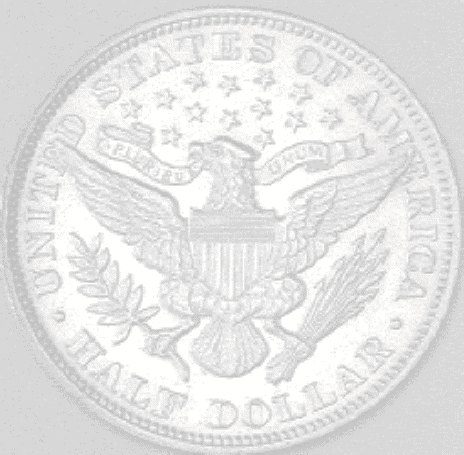
|
|
||
|
|
|
|
|
|
||

-54-
FOR BETTER OR WORSE:
Bankers vs. the Government
When Abraham Lincoln took office as President of the United States, the National Debt was 100,000,000 "dollars," * and the Treasury was nearly out of "money” (Griffin, 177). The banks refused to loan "money" to the government except at exorbitant rates of interest, so on February 25, 1862, Congress passed the Legal Tender Act. While it made unlawful "money" "legal," and forced the public to receive it in payment, it angered the bankers by "authorizing" "Legal Tender" notes, otherwise known as "United States" notes commonly called "Greenbacks." **
* The national debt --We are plagued with
a national debt. In 1986, the national debt was somewhere in the
neighborhood of 4 trillion "dollars." But, if as the Federal Reserve
tells us, debts are merely "book entries," then what in reality do we
owe?
** Was it not an act of intentional fraud for Mr. Lincoln to "authorize"
Congress to manufacture "money" when in reality there was none? And what
was his reason for doing it? It was to finance the War Between the
States. Wars would nearly become non-existent if the financing of them
were with gold or silver, both of which require labor to mine, labor to
refine and labor to mint; and both of which God has created to be
precious. Wars and "rumors of wars" are financed by paper "money" which
the first user gets for nothing. It costs less than nine-tenths of a
cent to print a "dollar” bill or a five thousand "dollar" bill.
The Times of London reported:
If that mischievous financial policy, which had its origin in the North American Republic . . .should become indurated down to a fixture then that government will furnish its own money without cost. It will pay off its debts and be without debt. It will have all the money necessary to carry on its commerce. It will become prosperous beyond precedent in the history of the civilized governments of the world. The brains and the wealth of all countries will go to North America. That government must be destroyed or it will destroy every monarchy on the globe (Griffin, 178).
Mr. Griffin well notes that
"Had a truly honest money system been allowed to become firmly
established in the United States, no other nation would have been able
to maintain a dishonest money system" (Griffin, 178).
The Hazard Circular declared,
Slavery is likely to be abolished by the war power. This, I and my European friends are in favor of, because slavery is but the owning of labor, and carries with it the care of the laborers, while the European plan . . . is that capital money lenders shall control labor by controlling wages.
The great debt that capitalists will see is made out of the war, must be used to control the value of money. To accomplish this, government bonds must be used as a banking basis. We are now waiting for the Secretary of the Treasury (Salmon P. Chase) to make that recommendation. It will not allow Greenbacks (Legal Tender notes) to circulate as money for any length of time as we cannot control that. But we can control the bonds, and through them, the banking issues (Griffin, 178).
The National Banking Act of
1863 again delegated to a private corporation the "right" to issue
"money." While it passed Congress and became "law," President Lincoln
loudly protested (Griffin, 179). The National Banks collected interest
from the Government on the bonds they deposited with the Treasury, yet
they paid no interest for the currency they released (Griffin, 179).
After the "law" was passed, President Lincoln declared:
I see in the near future a crisis approaching that unnerves me, and causes me to tremble for the safety of our country; corporations have been enthroned, an era of corruption in high places will follow and the money power of the country will endeavor to prolong its reign by working upon the prejudices of the people, until the wealth is aggregated in a few hands and the Republic is destroyed (Griffin, 179-80).
Horace Greeley wrote of the National Bank Act in 1872:
We have stricken the shackles from 4 million human beings and brought all laborers to a common level, not so much by the elevation of the former slaves as by practically reducing the whole working population, white and black, to a condition of serfdom. While boasting of our noble deeds, we are careful to conceal the ugly fact that by our iniquitous system, we have nationalized a system of oppression which, though more refined, is not less cruel than the old system of chattel slavery (Griffin, 179).
Salmon P. Chase, Secretary of the Treasury, lamented, "My agency in promoting the passage of the National Banking Act was the greatest financial mistake of my life" (Griffin, 180).
